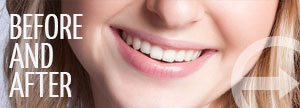


 (937) 235-2400
(937) 235-2400

 Your body has an internal clock that regulates its function and helps to maintain balance among its complex systems. When you’re deprived of adequate rest, there can be an interruption in the natural flow of things. More specifically, studies show that lack of sleep affects gut health, and that untreated sleep apnea can be a major contributor to the problem. Continue reading to learn more about this phenomenon and to find out what can be done about it.
Your body has an internal clock that regulates its function and helps to maintain balance among its complex systems. When you’re deprived of adequate rest, there can be an interruption in the natural flow of things. More specifically, studies show that lack of sleep affects gut health, and that untreated sleep apnea can be a major contributor to the problem. Continue reading to learn more about this phenomenon and to find out what can be done about it.
The term ‘gut’ refers to the environment inside your intestines. It’s where you’ll find the largest concentration of microorganisms, and they make up what is called the microbiome. Within this self-contained world can be found trillions of microbes, bacteria, viruses, fungi and protozoa.
It could be said that sleep and the microbiome have a relationship that’s like a two-way street. The microbiota have an effect on how you sleep, while sleep and circadian rhythms appear to affect the health and stasis of the bacterial world that lives inside your gut.
Studies have found that just two nights of partial sleep deprivation can cause a significant decrease in the number of beneficial bacteria available. The changes in the composition of the microorganisms have been linked to obesity and the development of type-2 diabetes.
A decline in gut health due to poor sleep has also been linked to diminished cognitive function. This can result in such conditions as depression, anxiety and post-traumatic disorder. Interestingly, these are some of the same symptoms experienced among people suffering from sleep apnea, which is the frequent interruption in breathing that prevents normal and restful sleep.
If you have sleep apnea, it’s of the utmost importance to have it treated. But first, you need to recognize the symptoms. Here are some common indicators:
The typical way of treating sleep apnea is to wear a CPAP mask, which is designed to force air into your throat while you sleep. Because many patients find this to be a difficult form of treatment, sleep dentists are happy to now have some alternatives to offer, one of which is the Somnodent sleep apnea appliance. The custom-made device is designed to comfortably fit in your mouth while you sleep, and it functions by slightly shifting your jaw forward to allow for better oxygen flow.
If you suspect you have sleep apnea, bring it to your physician’s attention so you can be tested and get on the road to recovery!
About the Author
Dr. James A. Striebel is a graduate of Case Western Reserve Dental School in Cleveland. Throughout his over 20 years of service, he has provided the utmost in care, while constantly striving to expand his knowledge and further hone his skills. A member of the American Academy of Dental Sleep Medicine, Dr. Striebel treats sleep apnea at his private practice, and he can be reached for more information through his website.
No comments yet.
RSS feed for comments on this post.
Sorry, the comment form is closed at this time.